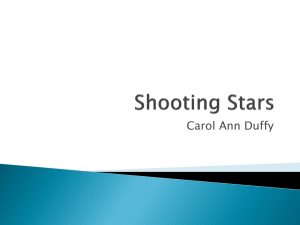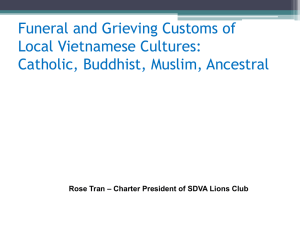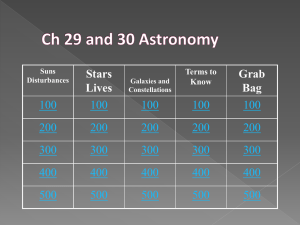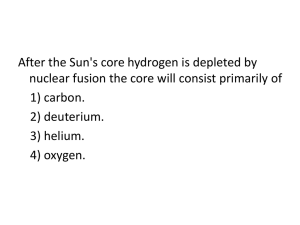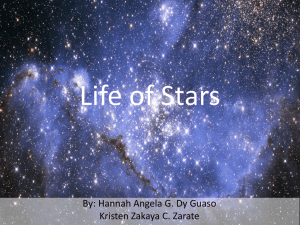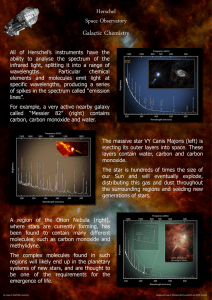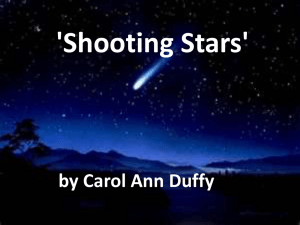Shooting Stars presentation
advertisement
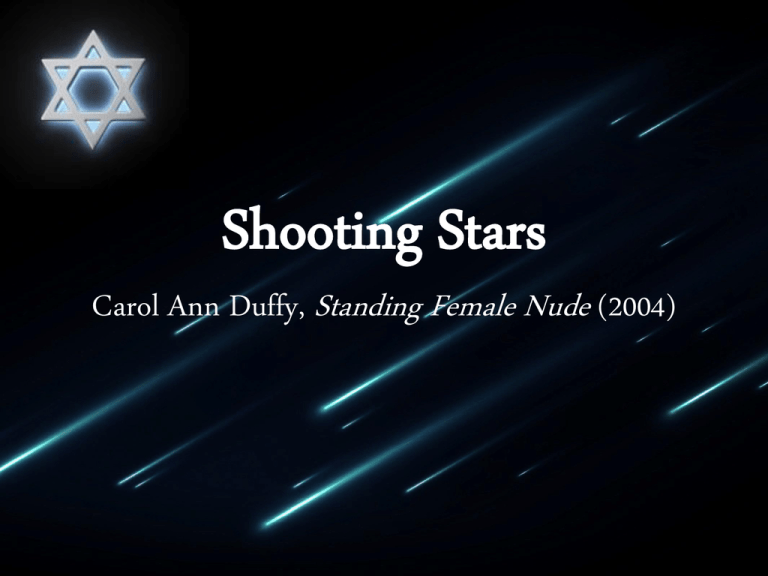
Shooting Stars Carol Ann Duffy, Standing Female Nude (2004) Shooting Stars After I no longer speak they break our fingers to salvage my wedding ring. Rebecca Rachel Ruth Aaron Emmanuel David, stars on all our brows Beneath the gaze of men with guns. Mourn for our daughters, upright as statues, brave. You would not look at me. You waited for the bullet. Fell. I say, Remember. Remember those appalling days which make the world forever bad. One saw I was alive. Loosened his belt. My bowels opened in a ragged gape of fear. Between the gap of corpses I could see a child. The soldiers laughed. Only a matter of days separate this from acts of torture now. They shot her in the eye. How would you prepare to die, on a perfect April evening with young men gossiping and smoking by the graves? My bare feet felt the earth and urine trickled down my legs. I heard the click. Not yet. A trick. After immense suffering someone takes tea on the lawn. After the terrible moans a boy washes his uniform. After the history lesson children run to their toys the world turns in its sleep the spades shovel soil Sara Ezra… Sister, if seas part us, do you not consider me? Tell them I sang the ancient psalms at dusk inside the wire and strong men wept. Turn thee unto me with mercy, for I am desolate and lost. Shooting Stars After I no longer speak they break our fingers to salvage my wedding ring. Rebecca Rachel Ruth Aaron Emmanuel David, stars on all our brows Beneath the gaze of men with guns. Mourn for our daughters, upright as statues, brave. You would not look at me. You waited for the bullet. Fell. I say, Remember. Remember those appalling days which make the world forever bad. One saw I was alive. Loosened his belt. My bowels opened in a ragged gape of fear. Between the gap of corpses I could see a child. The soldiers laughed. Only a matter of days separate this from acts of torture now. They shot her in the eye. Markup key: prosodic devices enjambment euphemism diction personification symbolism enumeration metaphor / simile imagery juxtaposition irony/pun allusion rhetorical questions How would you prepare to die, on a perfect April evening with young men gossiping and smoking by the graves? My bare feet felt the earth and urine trickled down my legs. I heard the click. Not yet. A trick. After immense suffering someone takes tea on the lawn. After the terrible moans a boy washes his uniform. After the history lesson children run to their toys the world turns in its sleep the spades shovel soil Sara Ezra… Sister, if seas part us, do you not consider me? Tell them I sang the ancient psalms at dusk inside the wire and strong men wept. Turn thee unto me with mercy, for I am desolate and lost. Markup key: prosodic devices enjambment euphemism diction personification symbolism enumeration metaphor / simile imagery juxtaposition irony/pun allusion rhetorical questions Form, tone, perspective: • Dramatic monologue in which Duffy gives a voice to someone from whom it has been unjustly taken, as she does in many of her poems. –6 stanzas, each with 4 lines –irregular meter, but most lines have 12 – 13 syllables –no end rhyme (free verse) • The speaker is a dead woman who was killed in the scene she describes, addressing her surviving Jewish brethren. • Tone: this is an angry, bitter poem, with a tone of harsh condemnation from author as well as speaker. The mood is dark and serious. Literal meaning: A female Jewish concentration camp victim during the Holocaust describes scenes of horrible sadism and abuse amid contrasting displays of oblivious normalcy. Specifically, she has her fingers broken and wedding ring taken, anticipates being raped by a soldier, watches a child shot in the head, and waits to be (and presumably is) shot; meanwhile, she depicts soldiers laughing, gossiping, smoking, and drinking tea, as well as children playing. Before she dies she appeals to an unidentified female survivor to be remembered. Figurative meaning: Juxtaposition operates to render the atrocities of genocide more vivid, as the speaker describes the heart-wrenching deaths of innocent women and children at the hands of Nazi soldiers who seem amused by their own casual sadism. The salient theme is that these acts must be recognized and remembered in order to prevent their repetition by future generations, and also out of respect for the memory of all of those whose identities were effaced by such senseless crimes. Discussion questions: • Are the countless novels, poems, movies and paintings about the Holocaust that have become a part of popular culture an effective way to prevent similar atrocities in the future? • The Jewish people have been persecuted for most of their history on Earth. Has progress been made in the past two thousand years with regard to how minorities are treated? In the past sixty years? Websites consulted • http://bigbackground.com/stars/shooting-stars-wallpaper.html • http://fr.123rf.com/photo_20384289_smiley-triste-avec-effet-retro-eclairage-sur-le-fondnoir.html • http://www.dailymail.co.uk/home/books/article-2046091/HEROINES-ON-THE-TRAIN-RIDETO-HELL-A-TRAIN-IN-WINTER-BY-CAROLINE-MOOREHEAD.html
